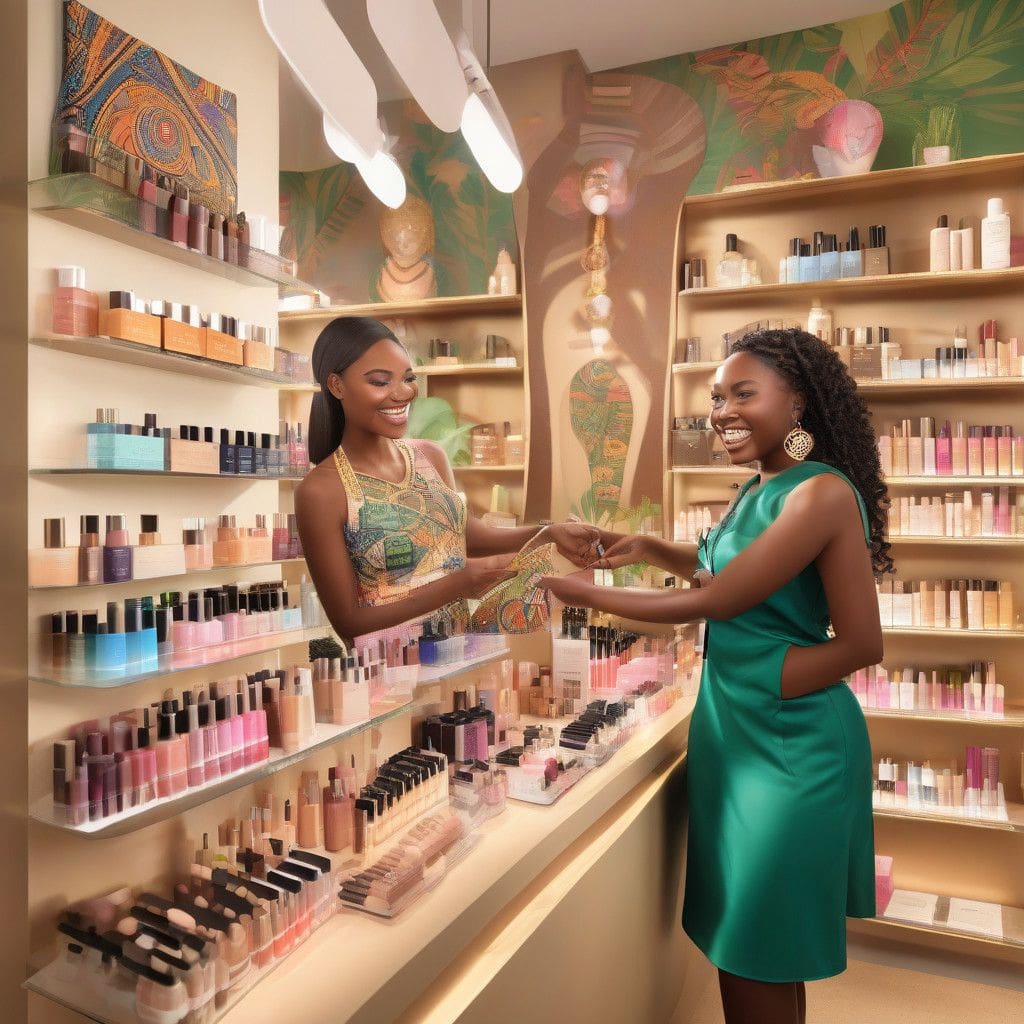In recent years, Africa has emerged as a significant player in the global beauty market, characterized by a rising affluent middle class, a cosmopolitan youth demographic, and shifting consumer behaviors. As global beauty brands strive to tap into this vibrant potential, multi-brand retailers across the continent have become vital channels for distribution, successfully bridging the gap that larger chains like Sephora have yet to address.
One of the trailblazers in this segment is Dr. Joyce Gikunda, who started her journey in the 1980s by identifying and introducing innovative skincare products to her pharmacy in Nairobi, Kenya. Her experience emphasizes the need for passionate local entrepreneurs who can navigate their regional markets effectively. By 2008, Gikunda transformed her pharmacy into Lintons Beauty World, a dedicated beauty store that has successfully partnered with international brands like Estée Lauder, Lancôme, and Fenty Beauty, establishing a thriving network of 29 stores across Kenya and Uganda.
This story typifies a growing trend across Africa where local multi-brand retailers have seized the moment to establish themselves as key players in a rapidly evolving beauty landscape. In countries such as Nigeria, local entrepreneurs have created robust distribution networks for luxury and skincare brands. For instance, Abiola Kasumu from Essenza and Alali Hart of Montaigne Place have built their businesses over decades and are now essential partners for many international labels looking to penetrate the Nigerian market.
However, entering African markets presents unique challenges. Many global brands have hesitated to invest due to misconceptions about local consumer preferences, often falling into the trap of treating African markets like “dumping grounds” for unsold products. Mathebe Molise, founder of Johannesburg-based Beauty on Tapp, cautions that international brands need to approach this market with the same level of commitment and respect they would afford to established markets like China or India.
The emergence of local beauty brands, known as ‘A-Beauty’ labels, reflects a shift towards homegrown innovation and a connection to indigenous ingredients. For example, the South African brand Suki Suki Naturals uses unique local ingredients like marula oil and baobab extracts to cater to the diverse needs of the African consumer. This trend showcases how local brands can adapt more swiftly to market demands compared to their international counterparts, ensuring they resonate with local aesthetics and cultural nuances.
In addition to local retailers, e-commerce platforms like Jumia and Takealot are gaining traction, capturing approximately 6% of beauty transactions in key markets like Egypt, Nigeria, and South Africa. This figure marks substantial growth from just a few years ago, demonstrating the shift towards online shopping and the importance of digital strategies in reaching today’s consumers.
Diverse cultural dynamics across different African nations require brands to adopt localized marketing strategies. For instance, brands like MAC have collaborated with local celebrities, such as Nigerian singer Tiwa Savage, to create products that resonate with the local audience. Such strategic alignments not only enhance brand visibility but also nurture community connections, which are critical in African markets.
The potential for growth in Africa’s beauty market is significant; it was valued at $10 billion in 2019 and is expected to see further expansion as the middle-class population grows. High-net-worth individuals in the region are set to increase by 65% within the next decade, reinforcing the desirability of the beauty segment for investors and brand owners alike.
As these dynamics unfold, establishing partnerships with local retail experts is critical for brands aiming to navigate the complexities of the African business environment. According to Susan Sabet, a marketing expert based in Cairo, understanding customer preferences and adapting product offerings accordingly is essential. She highlights that successful partnerships can provide the necessary insight for global brands to thrive amidst challenges.
The potential for beauty brands in Africa extends beyond local spending power; tourism also plays a role. In popular tourist destinations like Mauritius and the Seychelles, retailers are taking advantage of both local and international consumers. Mauritian retailer Mado, which offers high-end brands like Shiseido, illustrates this dual-market strategy effectively.
While challenges such as currency volatility and political instability may impact purchasing decisions, the overarching trend points towards a burgeoning opportunity for both local and international players. By capturing the distinctive traits of African consumers, brands can create personalized experiences that foster loyalty and trust.
In conclusion, the future of beauty retail in Africa holds significant promise. Multi-brand retailers have established themselves as indispensable partners for global brands looking to penetrate this lucrative market. By understanding local nuances, investing in genuine partnerships, and leveraging the rich cultural heritage of the continent, brands can effectively unlock the potential of Africa’s diverse beauty landscape.












